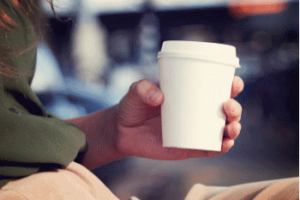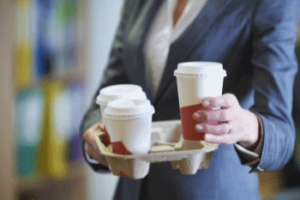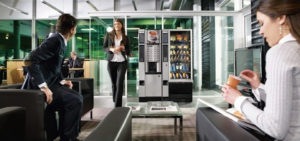More Than Just Four Options to the Disposable Coffee Cup Problem
 An article on BBC News outlined ‘four solutions to the disposable coffee cup problem’. It re-highlights the scale of the disposable coffee cup problem in the UK – 2.5 billion disposable coffee cups thrown away each year, with only a very small percentage being recycled. The article highlights how many businesses have engaged in collection and recycling schemes, but also lists four potential solutions to reduce disposable coffee cup waste.
An article on BBC News outlined ‘four solutions to the disposable coffee cup problem’. It re-highlights the scale of the disposable coffee cup problem in the UK – 2.5 billion disposable coffee cups thrown away each year, with only a very small percentage being recycled. The article highlights how many businesses have engaged in collection and recycling schemes, but also lists four potential solutions to reduce disposable coffee cup waste.
- The first ‘Frugalpac’, which produces cups made of recycled materials that can be recycled in standard recycling plants, rather than requiring special facilities, as many of the current coffee cups do.
- The second, CupClub, inspired by the chai wallahs of India, where cups are reused many times over. This would involve a customer becoming a member of CupClub and would get a reusable cup when they bought the coffee and then dropping it off at a collection point. Cup Club then deals with the cups, their cleaning and redistribution. Technology is involved too, by having cups tagged so when you bought your coffee you would be linked to a cup, and if you forgot to return it, you’d receive a text to remind you.
- The third, TrioCup is a triangular shaped cardboard cup, without the need for a separate lid.
- The fourth, the cupffee, is an edible cup similar to an ice cream cone, which will apparently hold the coffee for up to 40 minutes.
Of these four, I would imagine that Frugal pac is likely to be the option that would most easily be adopted by businesses and consumers, or potentially the Triocup but I suspect the Triocup would get some getting used to – mainly because it looks different. My research so far has shown that part of the reason many consumers have not yet adopted using a reusable cup, is that it reduces convenience, and the idea of the CupClub would again reduce the convenience somewhat if you had  to drop the cup off at particular locations. I like the concept though, and perhaps if more people get used to the concept of reusable cups or bottles (as has recently been introduced Pret stores for water) more generally, then a behaviour shift would take place. I’ll be interested to see how successful the reusable glass water bottles from Pret are over time. The idea of having coffee in something similar to an ice cream cone would be a novelty, and I think could work well in particular locations, but I’m not sure the regular commuter would adapt to this alternative too easily – although I would love to be proved wrong on this.
to drop the cup off at particular locations. I like the concept though, and perhaps if more people get used to the concept of reusable cups or bottles (as has recently been introduced Pret stores for water) more generally, then a behaviour shift would take place. I’ll be interested to see how successful the reusable glass water bottles from Pret are over time. The idea of having coffee in something similar to an ice cream cone would be a novelty, and I think could work well in particular locations, but I’m not sure the regular commuter would adapt to this alternative too easily – although I would love to be proved wrong on this.
These were just four options, some more novel than others, but there are lots more available; all involve some buy-in from both businesses and consumers. There are a range of reusable cups on offer from KeepCups, JocoCups, Ecoffee cups, or SoL cups which would reduce the need for disposable cups in the first place. It is however, good to see the issue remains to have a presence in the media, and discussions amongst the coffee community continue to seek new ideas about how to reduce waste in the industry (thinking more broadly than just coffee cup).



